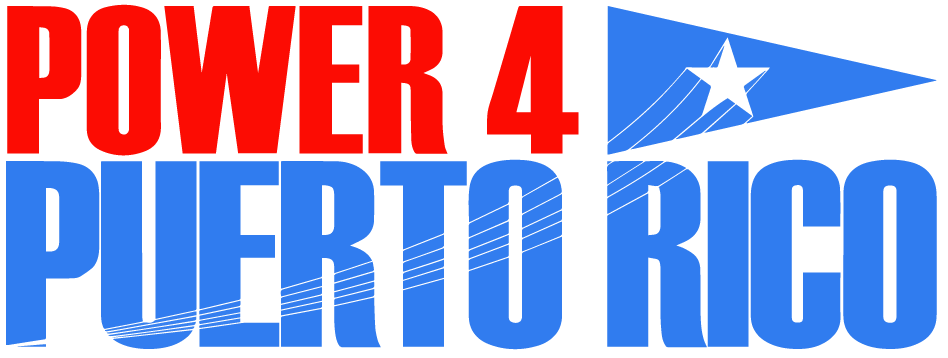Self-Determination
Letter to U.S. Senate — INFORMATION DENIED IS NOT DECOLONIZATION
Tag or email your Senator, with the following: In a democracy, Puerto Ricans are entitled to full information to make an informed vote on the Island’s status. The Puerto Rico Status Act denies Puerto Ricans critical information. As your constituent, I urge you to support full information and the constitutional assembly that was originally proposed so that Puerto Ricans alone, and democratically, can determine their future.
Today, in 2024, Puerto Rico is the oldest colony in the world and it is the only Spanish-speaking country in the entire Western Hemisphere that is not sovereign. Power 4 Puerto Rico supports Puerto Ricans’ long-denied right to self-determination —the freedom to choose how we define the status of Puerto Rico.
The process to decolonize Puerto Rico should be led by Puerto Ricans, without any US political interest trying to influence that process. As 126 years of U.S. colonialism approaches, we call on all those who say they are committed to human rights and to people-up democracy to support a fair process. Puerto Ricans are entitled to clear and full details upfront on the changes that would, or would not, come with each of the non colonial status options —free association, independence or statehood.
Critical Details Missing from the Puerto Rico Status Act
While we and many Puerto Rican groups call for a democratic, fair and inclusive Puerto Rican Status Assembly, Congress is pushing a bill known as the Puerto Rico Status Act (PRSA). The PRSA lays out another referendum (a voting process on status options). The PRSA leaves out critical information that the Puerto Rican people deserve to have upfront to make an informed decision before any status vote.
What is Congress leaving out? Just a few examples….
✖️ The PRSA does not say what would happen to Spanish, in the event that Puerto Rico becomes a state. In Puerto Rico, 95% of the people dream, sleep and eat in Spanish. The government, judicial system and schools operate in Spanish. Any Puerto Rico decolonization legislation must specify whether Spanish would remain the controlling language of government, courts and public education in Puerto Rico, or whether there would be a legal obligation or political expectation that Puerto Rico transition to English. We raise this important matter since in past situations where territories were converted to states, the Arizona Precedent Amendment required English as the official language before statehood was granted.
Changes to language could forever impact our cultural heritage and identity. The controlling language also matters in legal disputes that go to court.
✖️ The PRSA does not address the imposition of the Jones Act. The Jones Act —decided by Congress, not Puerto Ricans— restricts the kind of ships that can enter Puerto Rico. This unfairly makes the cost of essential goods coming into Puerto Rico higher for families and small businesses there. On top of this, during life or death emergencies like Hurricanes Maria and Fiona, Puerto Ricans are forced to ask the US for a waiver for ships that do not fly the US flag to dock in the Island with supplies.
As territories, then states, Alaska and Hawaii had and continue to have the same Jones Act imposed on them. Would Puerto Rico suffer the same fate under statehood? We don’t know because the PRSA completely leaves this out.
✖️ The PRSA tries to dictate the terms of an independent Puerto Rico. The PRSA over-reaches by trying to outline a constitutional process for the Puerto Rico archipelago. Just as independence was not outlined by Great Britain for the Thirteen Colonies, this should not be for the U.S. to shape.
What can I do?
✅ Reading and sharing this information is a great start!
✅ Send a note to your Congressional representative telling them “I am concerned that the Puerto Rico Status Act is denying information on whether Spanish would remain the controlling language and whether the Jones Act would continue to be imposed. How are you addressing this? When will there be full, bilingual official hearings in both DC and Puerto Rico?”
✅ Sign up for updates from us. We promise not to fill your inbox.
What is Self-Determination?
How are D.C. & Puerto Rico’s Situations Different?

















